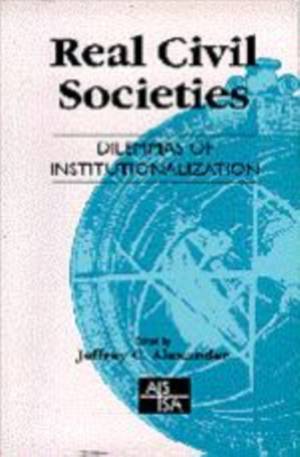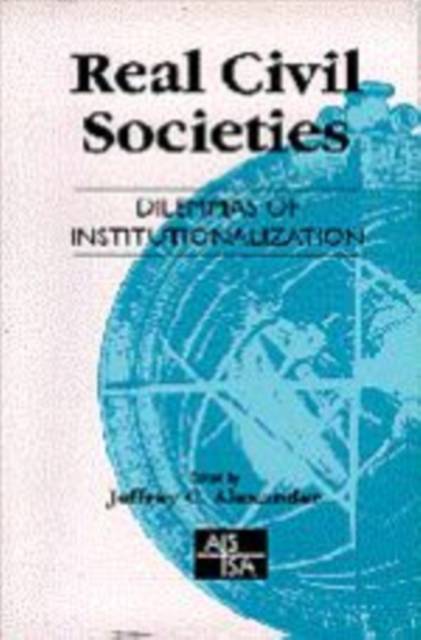
- Retrait gratuit dans votre magasin Club
- 7.000.000 titres dans notre catalogue
- Payer en toute sécurité
- Toujours un magasin près de chez vous
- Retrait gratuit dans votre magasin Club
- 7.000.0000 titres dans notre catalogue
- Payer en toute sécurité
- Toujours un magasin près de chez vous
Real Civil Societies
Dilemmas of Institutionalization
109,95 €
+ 219 points
Description
In recent social and political theory the term `civil society′ has achieved renewed currency. Traditionally used in a normative or `ideal-type′ sense, the term describes a form of social organization - that is simply neither economic nor political - where democracy, liberty and widespread solidarity are essential regulatory concepts.
Written from an empirical social-science perspective by some of the world′s most important social theorists, this volume is a critical examination of the normative sense of `civil society′. It includes analyses of civil society and democracy, citizenship, race and ethnicity, and post-communism.
Spécifications
Parties prenantes
- Editeur:
Contenu
- Nombre de pages :
- 256
- Langue:
- Anglais
- Collection :
- Tome:
- n° 48
Caractéristiques
- EAN:
- 9780761958215
- Date de parution :
- 18-06-98
- Format:
- Livre broché
- Format numérique:
- Trade paperback (VS)
- Dimensions :
- 137 mm x 215 mm
- Poids :
- 285 g

Les avis
Nous publions uniquement les avis qui respectent les conditions requises. Consultez nos conditions pour les avis.





